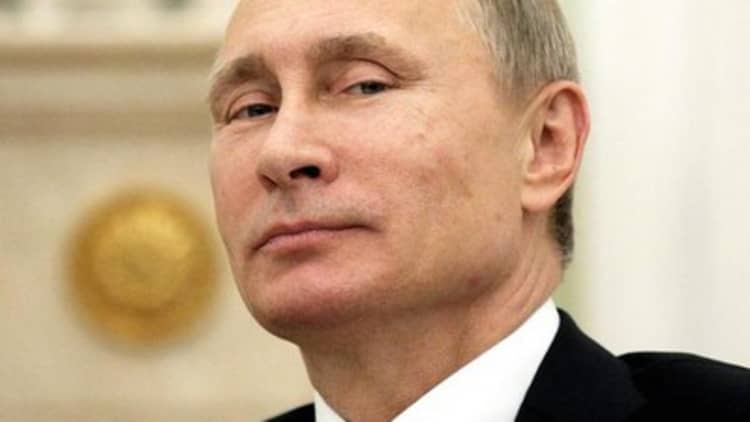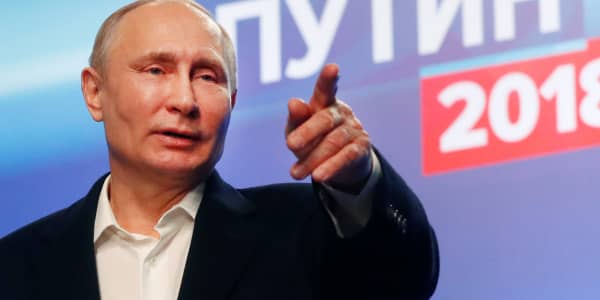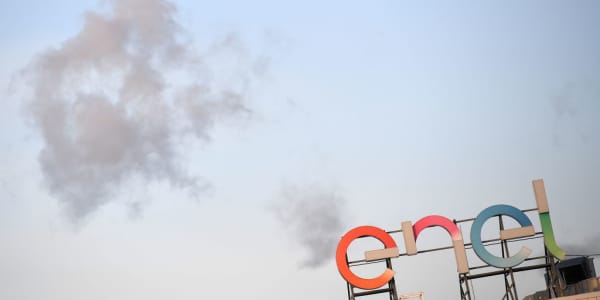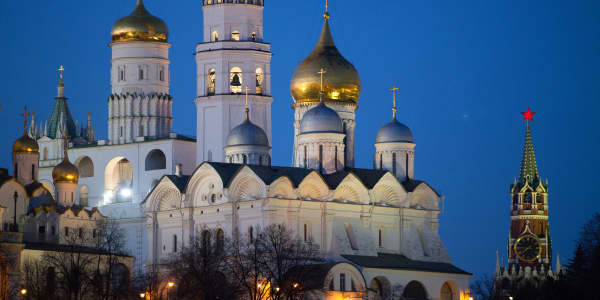Monday's rate cut came at an interesting time for the Bank of Russia's Governor Elvira Nabiullina.
She is under pressure to address the weak growth outlook reinforced by April's 4.2 percent contraction. That figure appeared to run contrary to some expectations that the worst was over for Russia's economy, given the pick-up in oil prices and the import substitution policy that has allowed a work around of Western sanctions.
Read MoreRussia: Time to invest despite sanctions threat?
The Bank has pursued a conservative policy on foreign exchange reserves, and is steadily rebuilding its firepower after last year's dramatic plunge in the ruble, triggered by Western sanctions and a swoon in global oil prices.
But its focus on reaching its goal of $500 billion did not take precedence over an interest rate cut.
The central bank and the Finance Ministry have also both raised concerns about recent strength in the ruble, which has surged by more than 50 percent versus the dollar since plummeting last year.
Given all this, it came as no surprise that the central bank on Monday reduced its key policy rate by a full percentage point, taking it to 11.5 percent.

The timing of the meeting will be keenly appreciated by the Central Bank. Business executives from around the world are expected to descend on St Petersburg for President Putin's showcase economic forum.
The event is a must attend gathering of Russia's political and business elite, and reaches its zenith with the President's Plenary session, televised live in Russia and around the world. It is both an opportunity to learn more about current Kremlin thinking, and the President's agenda, for the next 12 months.
Last year, President Putin used the event to both mock western criticism of Russia's actions in Ukraine while announcing a $14 billion plan to invest in infrastructure to support the economy. It was also the platform used to announce a strategic pivot away from Europe, with major deals signed to supply oil and gas to China.
Read MoreRussia isolation deepens, shuns German olive branch
This year's Forum will likely see a similarly defiant tone, and takes place barely a week after the Russian President was once again left off the G-7 guest list. Several Western leaders at the 41st G-7 summit held in Germany used the occasion to berate Moscow for the ongoing bloodletting in Ukraine, and that may elicit a response from Putin. Particularly given the likelihood that sanctions will be rolled over next month, he may feel he has nothing to lose on a domestic stage.
There is likely to be one subtle change to this year's event. The Minsk Agreement on a resolution to end fighting in Ukraine may not have reached its ambitions yet, but hostilities on the ground appear to have reduced. The economy has not collapsed under sanctions, and in fact the World Bank recently raised its outlook for this year and next. Most importantly, Washington and Moscow are talking.
There appears to be stasis over Ukraine, while discussions continue over other areas of shared interest. At the same time, the White House is reportedly not even actively dissuading US businessmen from attending the St Petersburg Forum this year.
Last year's forum was critical for President Putin's declared acceptance in his Plenary session of a democratic leadership vote in Ukraine. This year's message may not be as momentous, but it may confirm whether both investors and business can feel comfortable putting money to work in Russia again.





